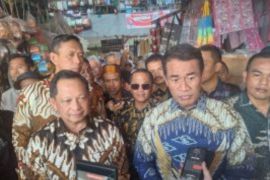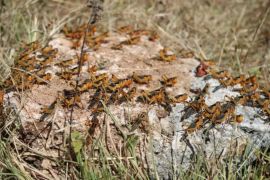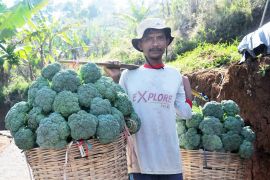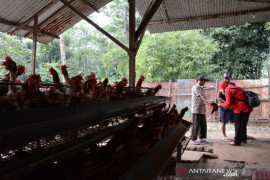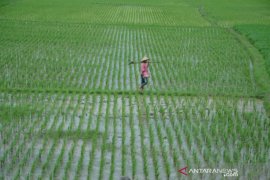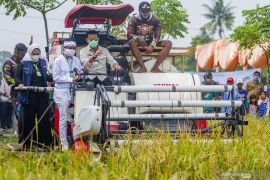Jakarta (ANTARA) - Asia-Pacific nations plan COVID-19 response for addressing hunger: FAO
The logo of the Food and Agriculture Organization of the United Nations (FAO). (HO-FAO)
As COVID-19 continues to threaten lives and livelihoods across numerous nations of the Asia-Pacific region, it has led to setbacks in the fight to end hunger and malnutrition, the UN FAO announced, as noted in a release issued by the FAO Regional Office for Asia-Pacific and received here on Tuesday.
The Asia-Pacific region is home to over half of the world’s undernourished, and in the wake of the ongoing COVID-19 pandemic, the number of hungry people in Southern Asia is projected to rise by nearly a third to reach 330 million by 2030, the Sustainable Development Goal deadline set by the global community to eliminate hunger and malnutrition in all its forms.
In response, government representatives from 46 FAO member states in Asia and the Pacific have convened a four-day virtual conference to closely assess the current situation of food security in the region, with specific emphasis on implications linked to the spread of the coronavirus disease and its impact on food systems across regions.
Over 400 delegates are partaking in a virtual meeting of FAO’s 35th Session of the Asia-Pacific Regional Conference hosted by the Royal Government of Bhutan.
The meeting involved government officials, private sector, civil society, academia, and technical experts in the food and agriculture sectors.
New-fangled ways and approaches
From Afghanistan and Iran in the west, across populous South and East Asia, and far out into the Pacific Islands, novels ways and approaches will be deemed necessary to trounce over the twin pandemics of COVID-19 outbreak and hunger.
Climate change is another aggravating factor menacing efforts to boost resilience across our food systems.
"We must come to terms with what is before us and recognize that the world and our region has changed. We must find new ways to move forward and ensure sustainable food security in the face of these twin pandemics as well as prepare for threats that can and will evolve in future," Assistant Director-General and FAO Regional Representative for Asia and the Pacific Jong-Jin Kim stated.
"This virtual conference brings together people and ideas to chart a true course of action for the benefit of all," Kim stated.
The conference will highlight FAO’s recently launched comprehensive COVID-19 Response and Recovery Programme designed to offer a flexible and coordinated global response targeted to ensure access to nutritious food for all. The programme includes the mobilization of all forms of resources and partnerships at the country, regional, and global level.
The main focus is to mitigate the immediate impacts of the COVID-19 pandemic while concurrently bolstering the longer-term resilience of food systems and livelihoods.
The conference will also take into account new marketing channels, such as e-commerce and new technologies, including better storage facilities, which will help to reduce food losses, as these are critical to ensuring the flow of nutritious foods and to boost incomes of those engaged in the food and agriculture sectors.
Equally critical is enabling smallholder and family farmers – those who produce most of the food we consume – to become more dynamic, entrepreneurial, and competitive through continual innovation. Smallholders will require much greater access to financial resources, technology, and innovation.
Bringing all players together will be critical to realizing these gains, and to this end, the FAO is in the process of implementing the Hand-in-Hand Initiative. The conference will feature a special session to gauge the progress achieved in the region through this initiative.
EDITED BY INE
Related news: Family farms vital to food security, in need of support: FAO
Related news: Jokowi warns of harsher dry season in Indonesia's 30-percent regions



